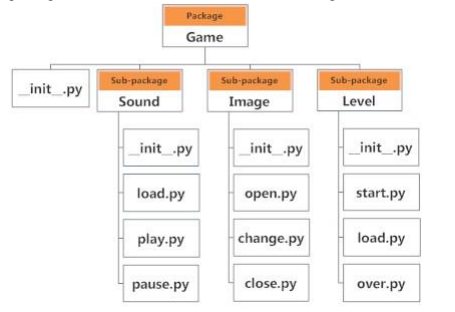Python Programming - Package - Python | Problem Solving and Python Programming : Files, Modules, Packages
Chapter: Problem Solving and Python Programming : Files, Modules, Packages
Package - Python
PACKAGE
A package is a collection of modules. A Python package can have sub-packages and modules.
A directory must contain a file named __init__.py in order for Python to consider it as a package. This file can be left empty but we generally place the initialization code for that package in this file.
Here is an example. Suppose we are developing a game, one possible organization of packages and modules could be as shown in the figure below.

Importing module from a package
We can import modules from packages using the dot (.) operator.
For example, if want to import the start module in the above example, it is done as follows. import Game.Level.start
Now if this module contains a function named select_difficulty(), we must use the full name to reference it.
Game.Level.start.select_difficulty(2)
If this construct seems lengthy, we can import the module without the package prefix as follows.
from Game.Level import start
We can now call the function simply as follows.
start.select_difficulty(2)
Yet another way of importing just the required function (or class or variable) form a module within a package would be as follows.
from Game.Level.start import select_difficulty
Now we can directly call this function.
select_difficulty(2)
Although easier, this method is not recommended. Using the full namespace avoids confusion and prevents two same identifier names from colliding.
While importing packages, Python looks in the list of directories defined in sys.path, similar as for module search path.
ILLUSTRATION PROGRAM
1. Word Count
import
sys
file=open("/Python27/note.txt","r+")
wordcount={}
for word
in file.read().split():
if word not
in wordcount:
wordcount[word]
= 1
else:
wordcount[word]
+= 1
file.close();
print
("%-30s %s " %('Words in the File' , 'Count'))
for key
in wordcount.keys():
print
("%-30s %d " %(key , wordcount[key]))
Related Topics